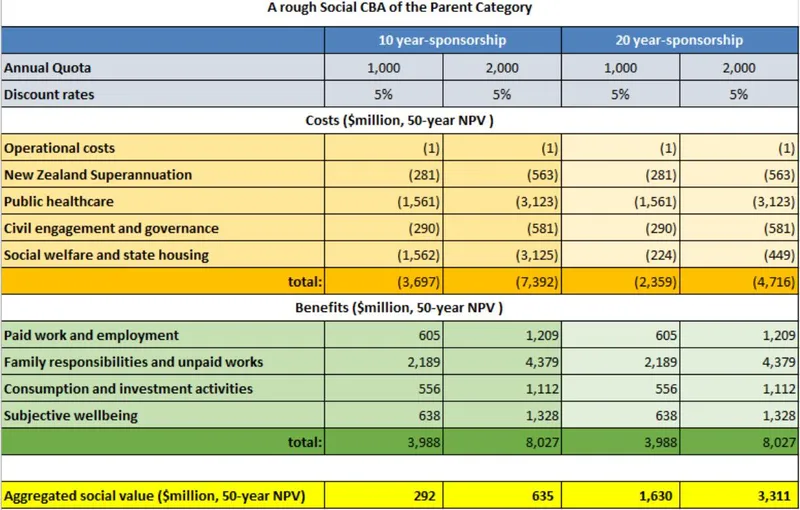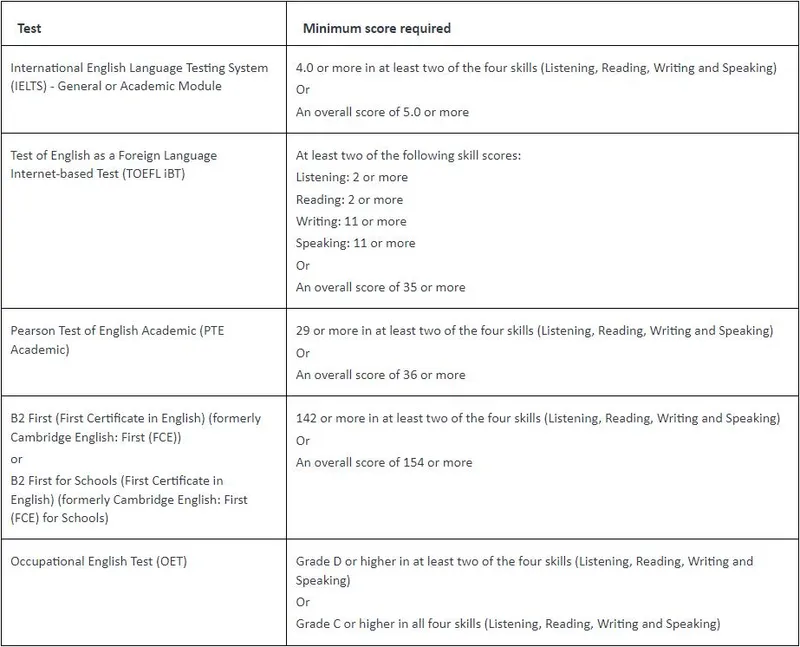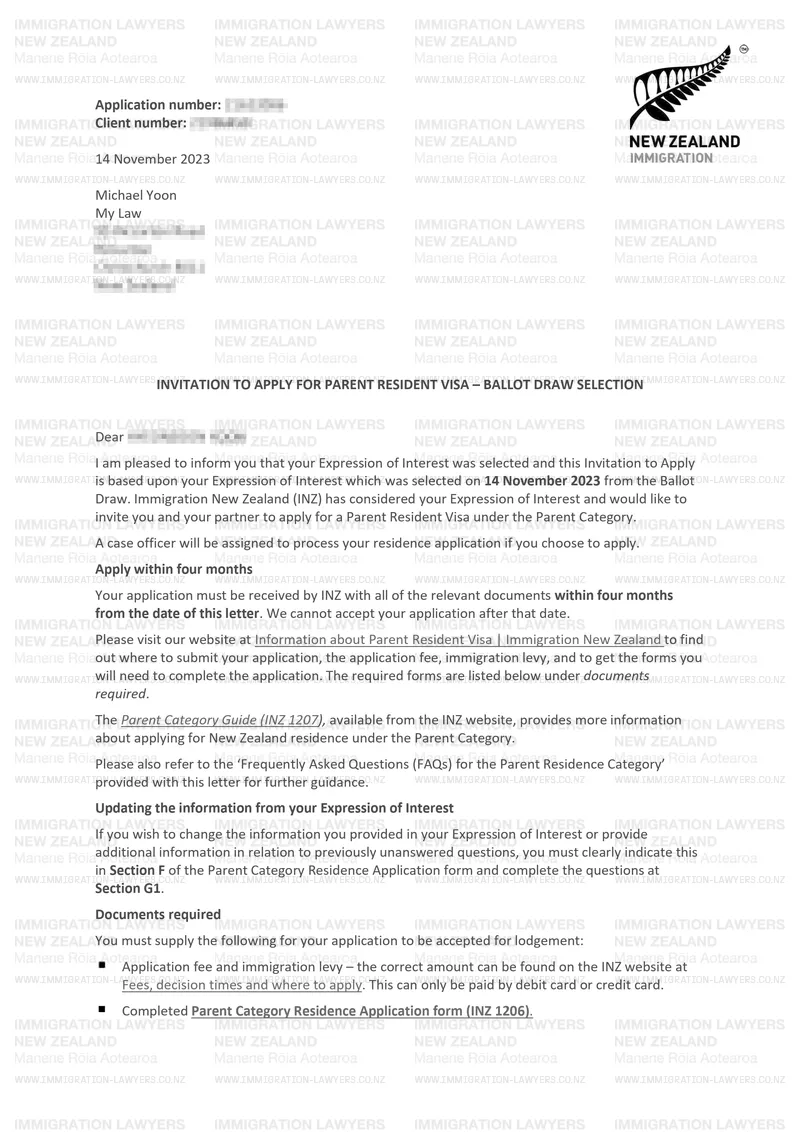If you want to learn about Parent Resident Visa, you've come to the right place.
This guide has everything you need to understand the basics of Parent Resident Visa. You'll also find links to useful resources from our blog and video throughout, so you can plan your next steps.
What is a Parent Resident Visa?
The Parent Resident Visa Category is a visa that allows parents to gain New Zealand residency if they have an adult New Zealand citizen or resident child who can sponsor their application.
In the current immigration policy, there is an annual quota limit of 2,500 people available for the Parent Residency Visa Category (each year ending 30 June). There is an income threshold requirement that must be met by the supporting child/children.
The income threshold requirement can be difficult to meet depending on how many parents you are supporting (i.e. father, mother, or both), or whether there will be one sponsor or two jointly, as the income threshold will become higher — more on this later in this guide.
The primary rationale behind the government's decision to establish this residence pathway for parents is based on its cost-benefit study. Research has shown that having parents live in New Zealand serves as an incentive for skilled migrants to establish long-term roots in the country and possibly even expand their families by having more children.

The immigration policy governing the parent resident visa category can be characterised by its volatility and susceptibility to abrupt changes. For instance, this category experienced a freeze for approximately 10 years, only reopening on 12 October 2022.
How does a Parent Resident Visa work in NZ?
To apply for residence under this visa category involves a two-step process.
First, applicants wishing to apply must first submit an Expression of Interest (EOI). The EOIs will enter a pool, and there will be a selection round roughly every three months. The dates are not fixed, and Immigration NZ announces the exact dates from time to time.
The selection process is not on a first-in, first-served basis. New Zealand Immigration uses a ballot system, which means it is a random draw. It has been said that the chance of getting selected in a round is about 3%. The submitted EOI will remain in the pool for up to two years, and it will expire if it is not successful in that time period.
This would mean that you would have to continue travelling on a visitor visa (e.g. parent and grandparent visitor visa) to visit your family in New Zealand while waiting for your Expression of Interest to be chosen from the ballot pool.
For those who have been lucky enough to be selected from the pool, Immigration New Zealand will undertake a quick check on the details provided in the EOI, such as whether or not you have a child in New Zealand. If deemed credible, they will invite you to apply by sending you an Invitation to Apply (ITA). The ITA will give you a four-month window to submit your application.
Let's take a look at some of the visa rules you will need to check before applying for a parent-resident visa.
What are the requirements of a Parent Residency Visa?
Once you have been invited to apply for residence, you will need to lodge the residence application within four months. To qualify for this visa, you will need to demonstrate that you meet the visa requirements as follows:
- must meet the health and character requirements; and
- must meet the requirements for English or pre-purchase ESOL tuition;
- have no dependent children; and
- have at least one NZ citizen or resident adult child who lives in New Zealand permanently and who is an eligible sponsor (including meeting the minimum income threshold requirements).
The tricky part of the requirements for this visa is to prove that the supporting child earns sufficient income to sponsor your resident visa application. Contact us to discuss your needs; we are able to make the process stress-free and manage the process from start to end.
English language requirement
The minimum English standard required is outlined in the table below. INZ accepts a number of different types of English proficiency tests; for example, if you sit an IELTS exam, the acceptable English language test result is 4.0 or more in at least two of the four skills (Listening, Reading, Writing and Speaking) or an overall score of 5.0 or more.

The requirement can be waived if you can provide other evidence that will satisfy the immigration officer, such as whether you have lived in an English-speaking country and for how long, and whether you have worked or studied in an English-speaking environment. The immigration officer assessing your application can request an interview to verify your English language ability.
You also have the option of pre-purchasing ESOL tuition for $1,735 per applicant.
Who can be a sponsor?
The requirements for sponsors are, among other things, someone who is a New Zealand citizen or has held a New Zealand residence visa for at least three years and is ordinarily resident in New Zealand for the three years (at least 6 months at a time each year) immediately before the application is lodged.
Only the child of the principal applicant, the child and that person's partner jointly, or the child and one other child jointly can support the parent residence visa. All supporting persons must be an adult, and the sponsorship obligations will continue for a period of 10 years.
If an adult child and their partner are acting jointly as supporters, they must have lived together in a genuine and stable relationship for at least 12 months and will need to provide suitable evidence.
Parent Resident Visa sponsor income
The sponsor or joint sponsors will need to meet the requirements for the income threshold for two 12-month periods within the 3 years immediately preceding the date of the EOI selection. You will note that the requisite income threshold increases depending on the number of parents being supported and whether the application is being jointly supported.
The income threshold is tied to the New Zealand median wage, and it is calculated as follows:
- If one person is supporting one parent, they will need to have an income of 1.5 times th wage.
- When supporting additional parents, an extra requirement of 0.5 times the wage applies for each additional parent supported.
- If two individuals are jointly supporting, an additional 0.5 times the wage is added to the threshold.
The New Zealand median income is annually determined and announced by Stats NZ. Typically, INZ then incorporates this updated income into their policies either later in the same year or early in the following year.
Please refer to the tables below for specific threshold amounts.


In terms of evidence for this visa, NZ Immigration will only look at documents issued by the IRD against an individual's IRD number. None of your payslips, bank statements, or statements prepared by your accountant will be relevant.
Income earned by another legal entity, such as a company or a trust, will not be considered. The exception is if those entities are paid to the individual as shareholder-employee salary or dividends or income derived from the trust. The income must have been filed with the IRD and recorded against the individual's IRD number.
Try our sponsor income calculator
Calculating whether the required income threshold is met or not can be tricky, especially if there is business income to consider. We have developed income calculators that will quickly give you an indication as to whether the requirements are likely to be met.
Other options
If these financial requirements cannot be met and the residence application is likely to fail, you could consider other visa options, such as the Parent Retirement Resident Visa or the Parent and Grandparent Visa.
How much does a NZ Parent Resident Visa cost?
The Expression of Interest fee is $430. However, it's important to note that if your Expression of Interest (EOI) is not selected within a period of 2 years, it will expire, and should you wish to submit another EOI, you will need to pay the fee again.
Once you receive an invitation to apply, the subsequent step is to submit your Parent Resident Visa application. This application carries a fee of $2,750. Additionally, if you choose to meet the English language requirement by pre-purchasing ESOL (English for Speakers of Other Languages) tuition, there will be an additional cost of $1,735 per person.
What are the processes for a Parent Resident Visa?
Step 1: Submit an Expression of Interest form
You will need to complete and submit the Expression of Interest form. All information recorded on the form must be correct; otherwise, INZ can raise issues later when you are selected.
Step 2: Wait for the selection
Given that it is a random selection, it could take a while to get selected and be invited to apply. If your Expression has not been picked in 2 years, it will lapse, and you will have to put in a new Expression.
Step 3: Invitation to Apply
Ensure your child who is a NZ citizen or resident is in NZ and lived in NZ for the requisite time period.
Likewise, check whether the income requirement is still being met, it's necessary to look back for three years from the date of selection. Over this three-year period, it's important to carefully assess whether there have been any changes in the income due to the passage of time.

Step 4: Submit your visa application
Once you have gathered all relevant evidence in support, send in your application to Immigration New Zealand. They will be in touch should they require any further information.
Get professional immigration advice
If you're uncertain whether you've met all the requirements accurately, don't hesitate to contact us for a thorough evaluation of your case.
What is the processing time for a Parent Residency Visa?
As we mentioned earlier, this category was frozen for 10 years, so there have been no reliable statistics that could tell us what the likely processing timelines are. Given that it is a low-priority visa in New Zealand, it could take somewhere between 12 to 24 months after lodgement of the application.
What is the pathway after getting the Parent Resident Visa?
Once you have been granted the parent visa, you will be able to transition to a permanent resident visa when it has been 2 years, and you have been in New Zealand within 12 months for each of those two years, at least 184 days.
A permanent resident visa allows the holder to travel outside New Zealand for as long as they want and always be able to come back and live in NZ as a resident.